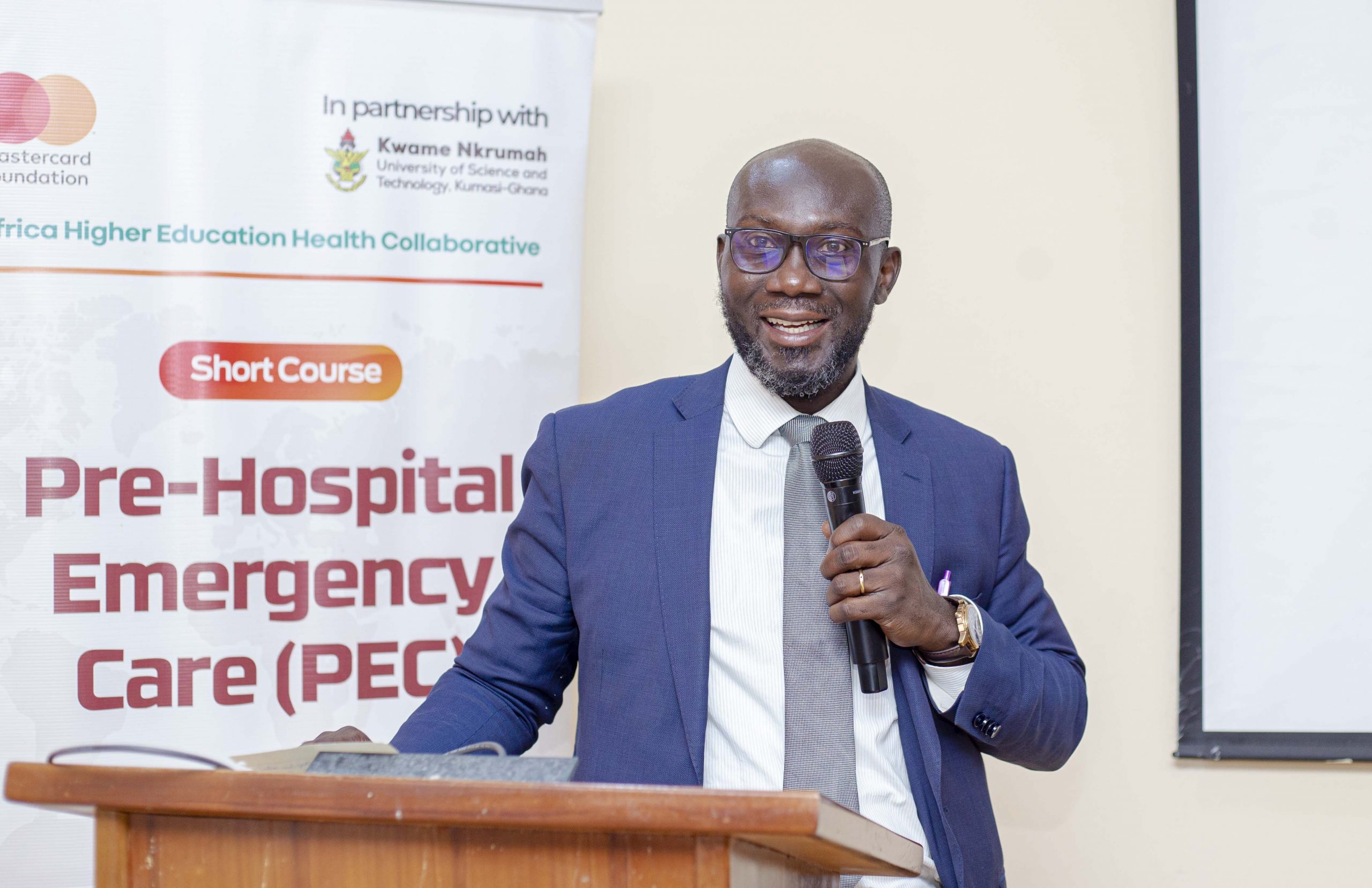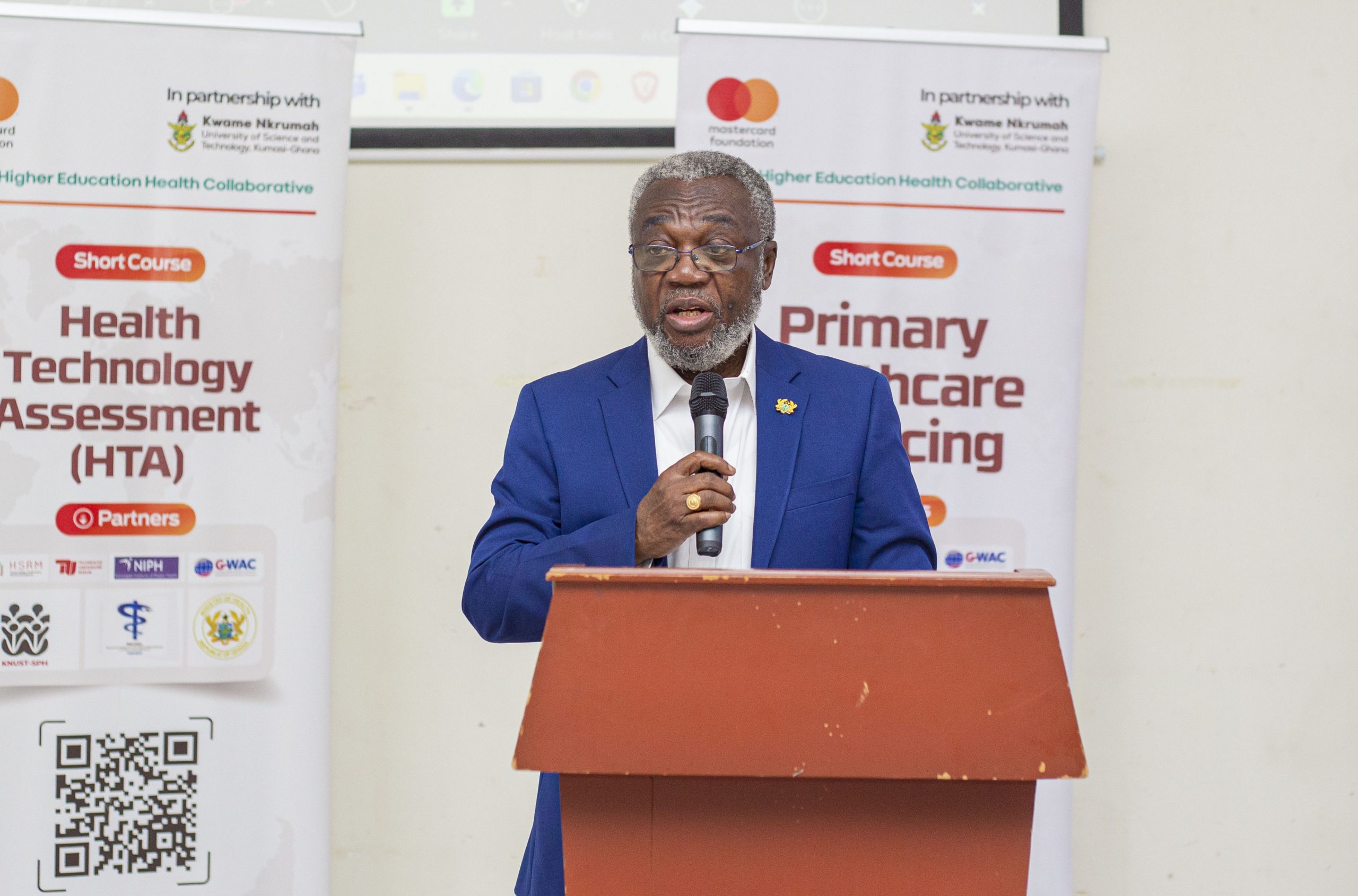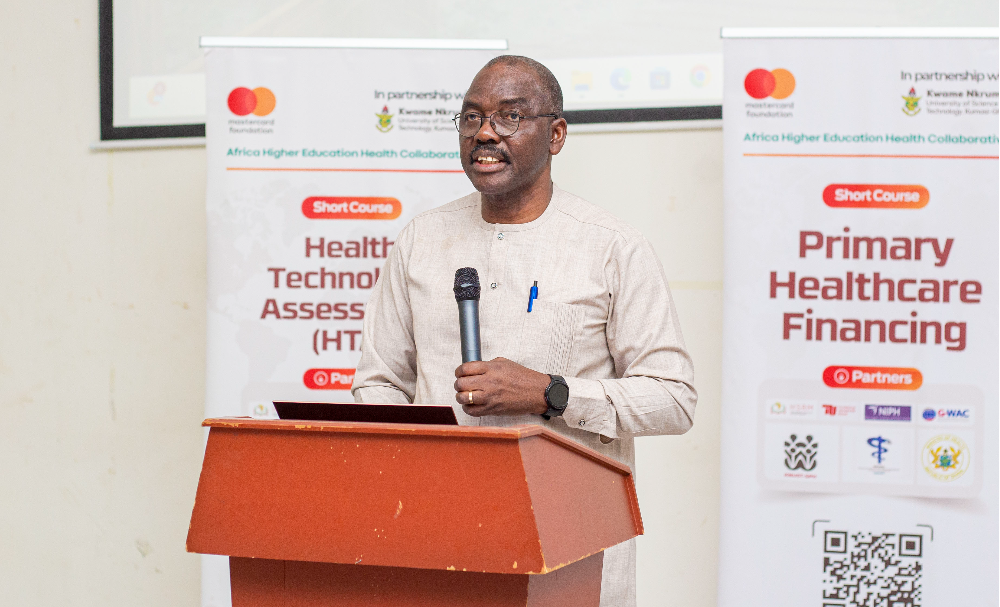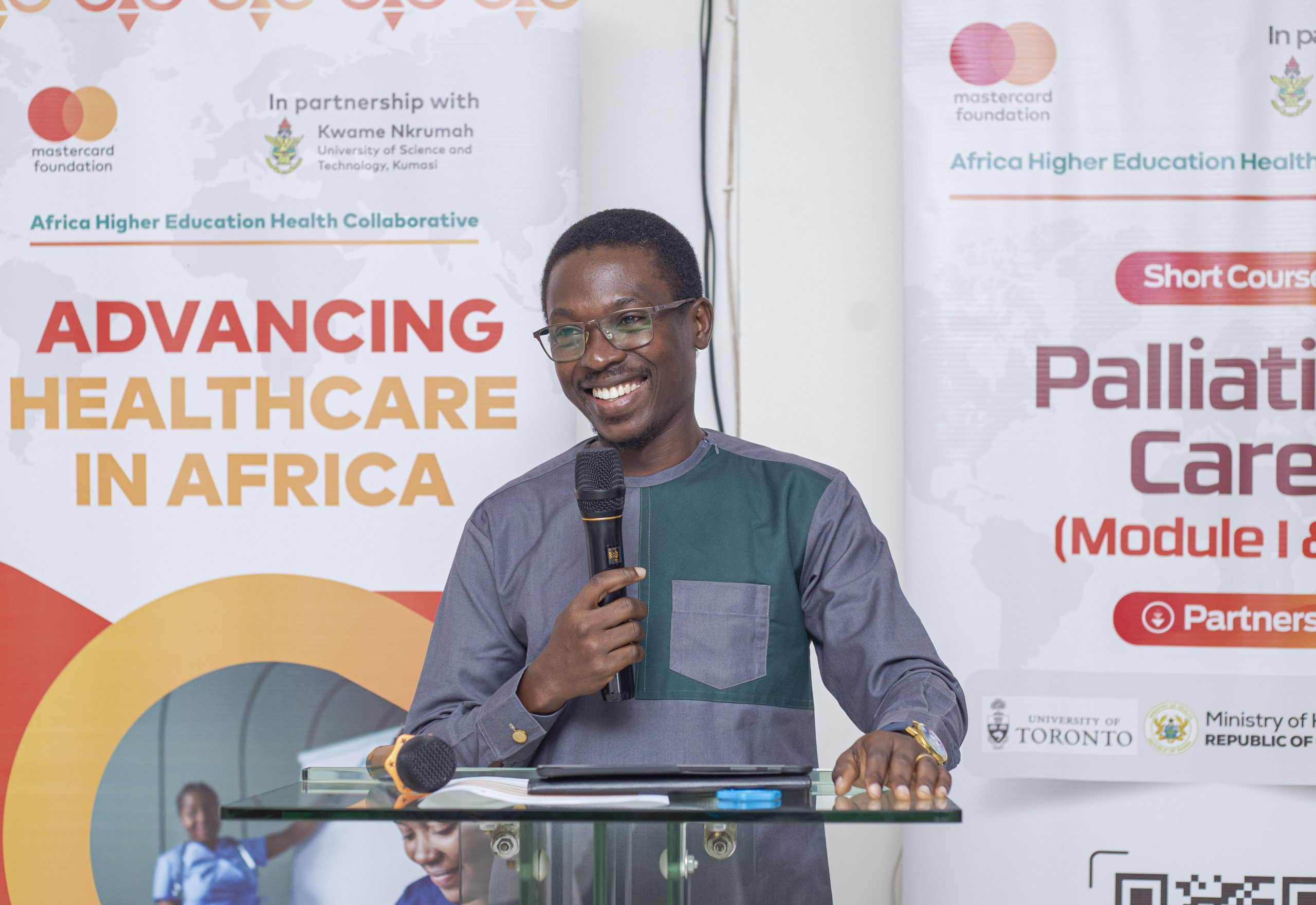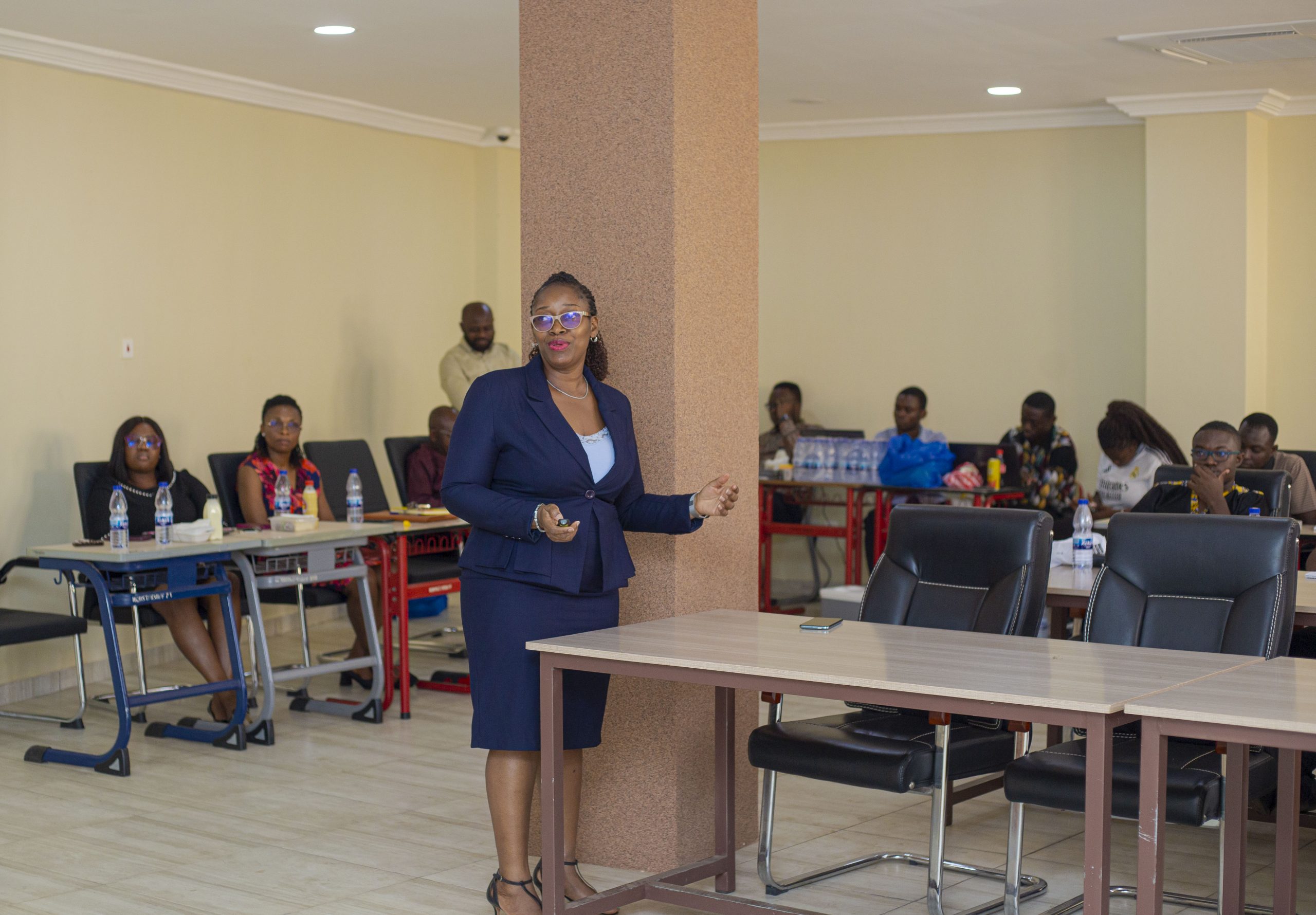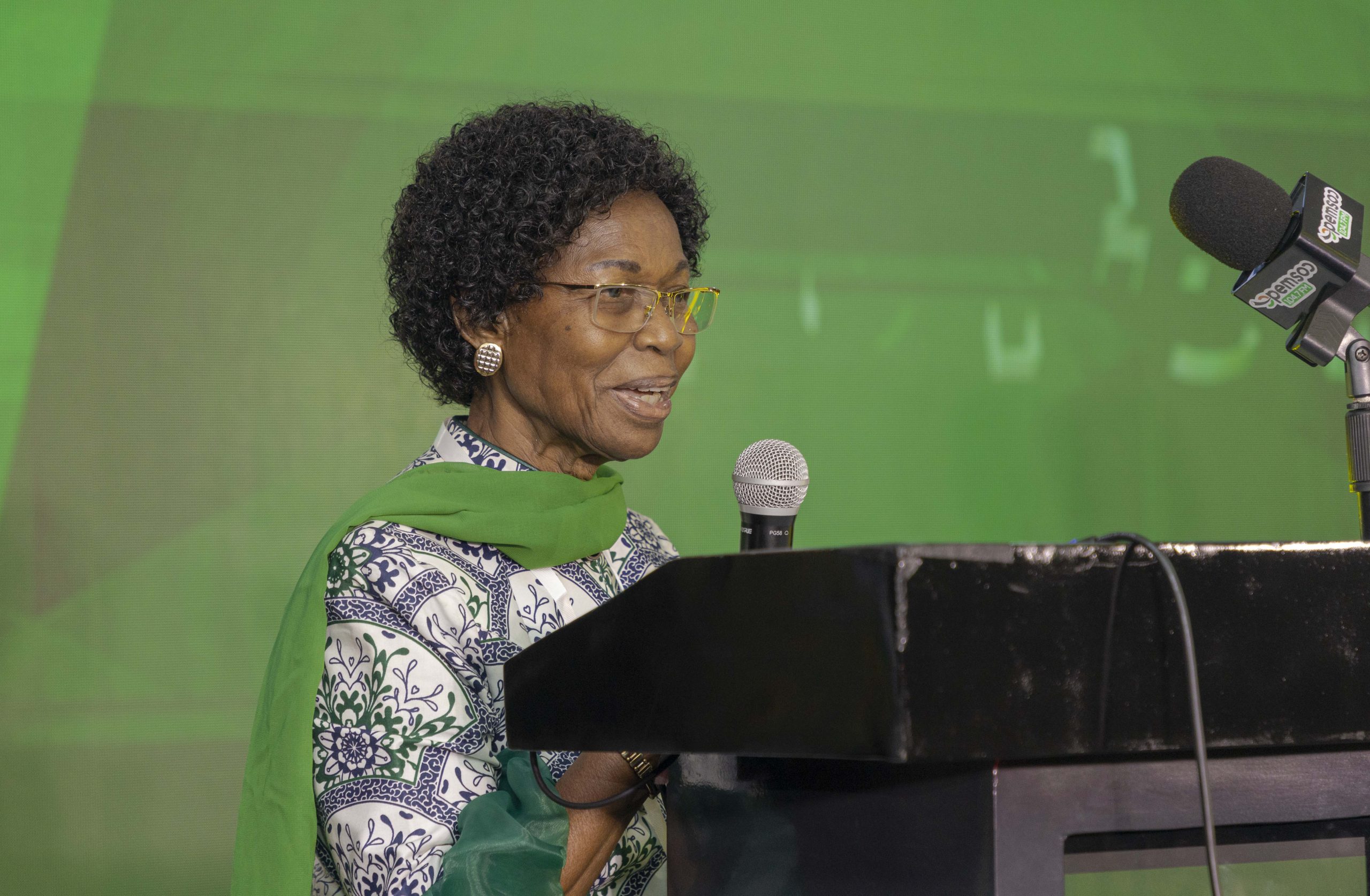Pre-hospital emergency care must be seen as a life-saving necessity, not a luxury, says Dr. Fred Adomako Boateng, Ashanti Regional Health Director.
Speaking at the launch of a new emergency training initiative, he emphasized that Ghana’s journey toward universal health coverage hinges on accessible, professional, and responsive care that begins at the site of an incident, whether at home, in the workplace, or on the roadside. “We cannot forget the unique challenges we face,†he stated, “but we must also not underestimate the power of preparedness, training, and coordination.â€
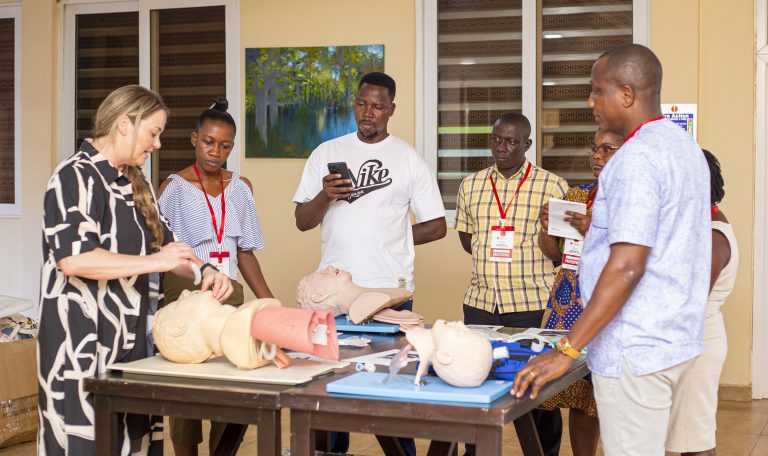
Dr. Boateng’s remarks set the tone for the short course on this year’s Pre-Hospital Emergency Care, organised by the Africa Health Collaborative, KNUST in partnership with the Mastercard Foundation and the University of Toronto (UoT). Twenty frontline health workers, including EMTs, nurses, prison officers, teachers, and community health personnel from across Ghana, have been selected for the intensive training.
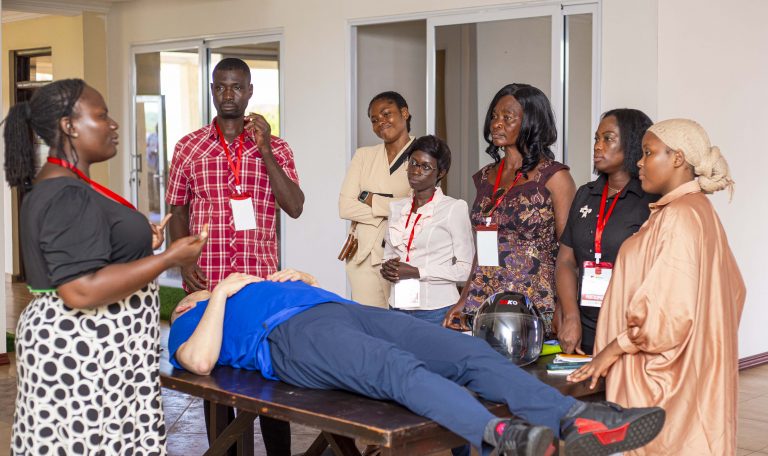
Led by Dr. Kofi Akohene Mensah under the Collaborative’s Health Employment pillar, the program aims to build Ghana’s capacity for early, effective emergency response.
Dr. Ian Drennan, Assistant Professor at UoT, highlighted the critical nature of early intervention: “A lot of times, by the time someone reaches a hospital, it may be too late. This course is about giving you the tools to make a difference in those critical early moments.†He also welcomed the renewed partnership with KNUST, emphasizing shared learning between Ghanaian and Canadian experts.
Adding to the call for commitment, Dr. Daniel Osei Kwame of the Komfo Anokye Teaching Hospital urged participants to recognize the life-saving potential of their role, noting, “Most patients don’t start their care journey at the hospital. Your intervention could be the reason someone survives.â€
He commended the inclusive nature of this year’s cohort, which for the first time includes both medical and non-medical personnel.
Dr. Joseph Owusu, lead of the Health Ecosystem pillar, described the training as an investment in Ghana’s future emergency response system. “You, the participants, are the vanguard of this transformation,†he said, encouraging active participation and knowledge sharing.
The course represents a significant step in Ghana’s strategy to strengthen its health systems and ensure timely care for all, long before the hospital doors open.
